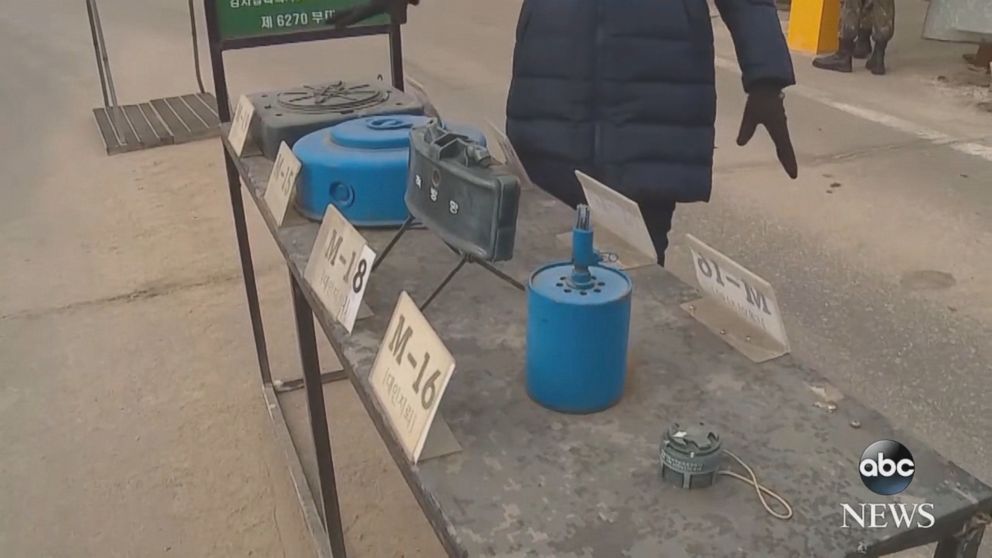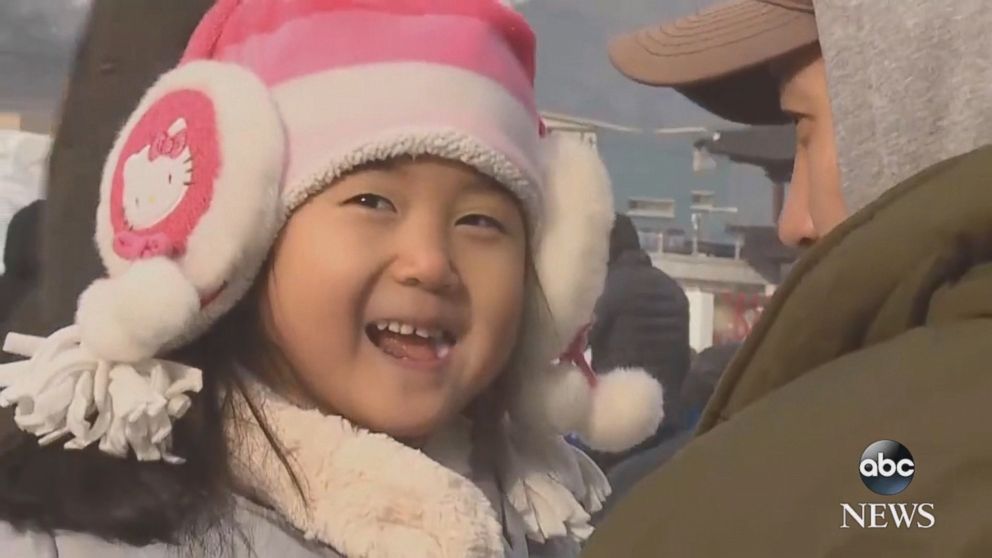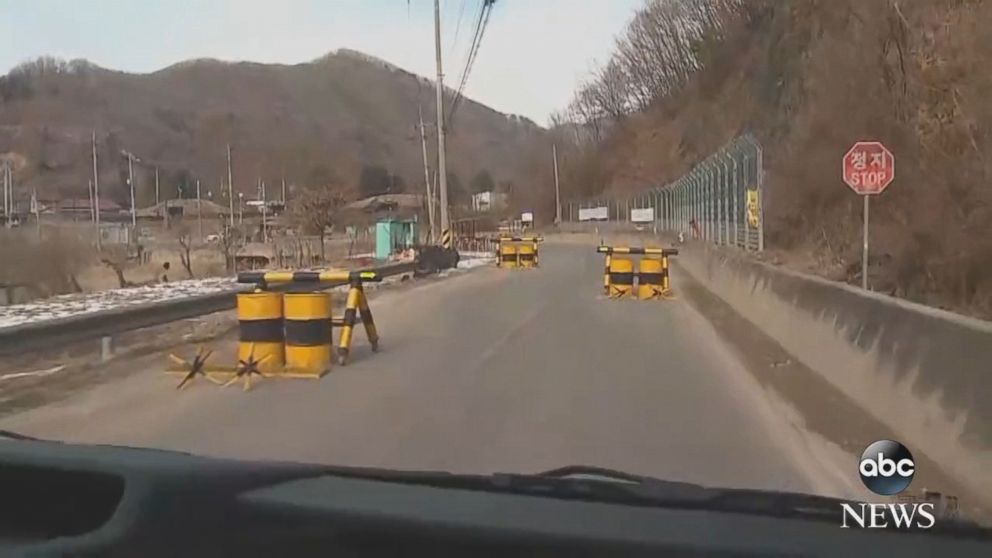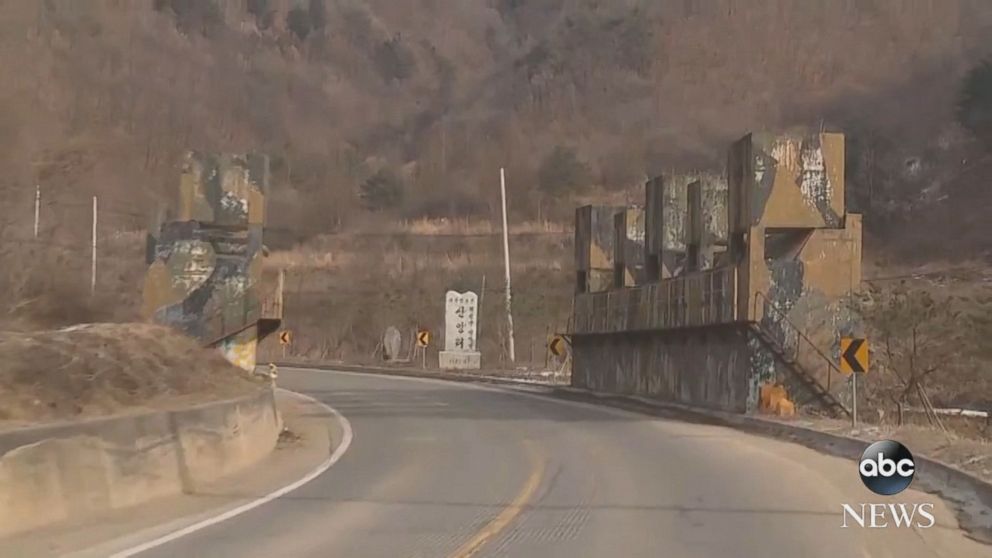Along the North Korean border, villages ice fish and live under amid ongoing nuclear tension
Hwacheon, South Korea, is just a few miles south of the border with North Korea
SANGYANG-RI, South Korea — -- Children shriek in delight as they try to grasp slippery trout in their gloved hands. Pop music wafts over the loud speakers. The winter sun reflects off the thick ice.
This is the scene in the town of Hwacheon, South Korea, just a few miles south of the border with North Korea.
Just before talks between North and South Korea, the first such talks in two years, Hwacheon is welcoming tens of thousands for its annual ice fishing festival. But the threat of nuclear war is never far away. Five attack helicopters passed overhead on Sunday morning, a stark reminder of the tension between the two countries.

That tension has been ratcheted up by tough tweets from President Donald Trump in recent days claiming he has a nuclear button "much bigger & more powerful" than Kim Jong Un's. South Koreans are well aware of the American president's rhetoric.
"It was immature to say he has a bigger button than Kim Jong Un," one festival-goer said. "I feel less safe with President Trump sitting in the office."
"I think he's going way overboard and I think he needs to retrain himself so we don't have war on the peninsula," another fisherman told ABC News.

Many people ABC News spoke with agreed the talks, set for Tuesday, are a good thing. At another village along the border, the so-called "Truce Village" of Panmunjom, where the armistice that suspended the Korean War was signed, and where soldiers from North and South Korea still stand face-to-face across the border at all times, representatives from the two countries will meet.
The talks will be limited to the North's potential participation in the Pyeongchang, South Korea Olympic games, set to begin in early February, but there is great anticipation here that the talks could lead to more.

Though the U.S. is not participating in the talks, President Trump said at Camp David on Saturday that he supports the talks.
"We need dialogue, we need to talk to each other. If President Trump's presence could help in that sense, I would feel more comfortable," said Kim Wan Tae, an asparagus farmer who has lived in the village of Sangyang-ri just south of the border for 34 years.
The road leading in and out of Sangyang-ri is dotted with concrete barriers, designed to collapse on the road and block a possible invasion of North Korean forces at a moment's notice. Closer to the border, artillery in bunkers with guns pointed north dot the landscape. Barbed wire and signs to look out for landmines complete the foreboding atmosphere.

But even those who survived the Korean War still living near the border say they think tough talk like President Trump's is sometimes necessary. Lee Byung Ok, a 75-year-old who remembers seeing the dead bodies of North Korean soldiers as her family fled the North in during the hostilities of the war, said "I know he goes overboard sometimes, but sometimes you need that, you need to be strong or aggressive towards the North at times."




